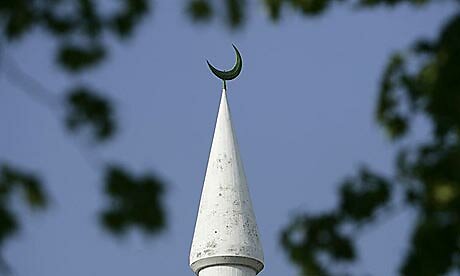In the Letter Concerning Toleration, John Locke wrote,
Nobody… neither single persons, nor Churches, nay, nor even commonwealths, have any just title to invade the civil rights and worldly goods of each other, upon pretence of religion. Those that are of another opinion would do well to consider with themselves how pernicious a seed of discord and war, how powerful a provocation to endless hatreds, rapines, and slaughters they thereby furnish unto mankind. No peace and security, no, not so much as common friendship, can ever be established or preserved amongst men, so long as this opinion prevails, that dominion is founded in grace, and that religion is to be propagated by force of arms.
A lot has changed since 1685, of course, but some things never will. Even today, the only way that people of different faiths (and of no faith) will ever be able to coexist in the same society is to divorce religion from state compulsion. Separation of church and state is a bargain that everyone can live with. It might just be the only bargain that treats everyone fairly, which is why it’s so important in a globalized, multiethnic world.
For the most part, we in the West have moved steadily toward Locke’s advice. This week the Swiss took a serious step backward:
In a vote that displayed a widespread anxiety about Islam and undermined the country’s reputation for religious tolerance, the Swiss on Sunday overwhelmingly imposed a national ban on the construction of minarets, the prayer towers of mosques, in a referendum drawn up by the far right and opposed by the government.
The referendum, which passed with a clear majority of 57.5 percent of the voters and in 22 of Switzerland’s 26 cantons, was a victory for the right. The vote against was 42.5 percent. Because the ban gained a majority of votes and passed in a majority of the cantons, it will be added to the Constitution.
The Swiss Constitution guarantees freedom of religion, but the rightist Swiss People’s Party, or S.V.P., and a small religious party had proposed inserting a single sentence banning the construction of minarets, leading to the referendum.
The Swiss government said it would respect the vote and sought to reassure the Muslim population — mostly immigrants from other parts of Europe, like Kosovo and Turkey — that the minaret ban was “not a rejection of the Muslim community, religion or culture.”
…Of 150 mosques or prayer rooms in Switzerland, only 4 have minarets, and only 2 more minarets are planned. None conduct the call to prayer. There are about 400,000 Muslims in a population of some 7.5 million people. Close to 90 percent of Muslims in Switzerland are from Kosovo and Turkey, and most do not adhere to the codes of dress and conduct associated with conservative Muslim countries like Saudi Arabia, said Manon Schick, a spokeswoman for Amnesty International in Switzerland.
“Most painful for us is not the minaret ban, but the symbol sent by this vote,” said Farhad Afshar, who runs the Coordination of Islamic Organizations in Switzerland. “Muslims do not feel accepted as a religious community.”
It’s transparently false to say that the minaret ban is “not a rejection of the Muslim community.” Of course it is a rejection of the Muslim community. It is a calculated, symbolic rejection. They didn’t go banning cloisters or mikvehs, after all. And because none of the existing minarets perform the daily calls to prayer, they can’t even say that the measure prevents noise pollution. (An excuse that would, if we were at all serious about it, ban Catholic church bells, while leaving the silent minarets untouched.)
As Locke might have observed, the Swiss ban on minarets isn’t going to calm religious tensions. It’s only going to make them worse, because now we know that the state is willing and able to use its power to disfavor a religion. It’s an open invitation, yet again, to everyone with a religious agenda: Use force, not persuasion. After all, that’s how they do it in (civilized, peace-loving) Switzerland!
Still more unfortunate is that Muslims feel the need to ask the government for acceptance in the first place. Someone should tell them that this is totally unbefitting a proud faith like their own, which should stand or fall on divine truth, not on popular referendum. A government that kept out of religious matters would neither restrict Islam nor feel the need to be falsely reassuring about it. And, under such a government, people of all religious persuasions would have a lot less to worry about.
Again, Locke is instructive:
Is it permitted to speak Latin in the market-place? Let those that have a mind to it be permitted to do it also in the Church. Is it lawful for any man in his own house to kneel, stand, sit, or use any other posture; and to clothe himself in white or black, in short or long garments? Let it not be made unlawful to eat bread, drink wine, or wash with water in the Church. In a word, whatsoever things are left free by law in the common occasions of life, let them remain free unto every Church in divine worship.
And, for the squeamish, Locke adds:
If anything pass in a religious meeting seditiously, and contrary to the public peace, it is to be punished in the same manner, and no otherwise, than as if it had happened in a fair or market.
Some things never change.

